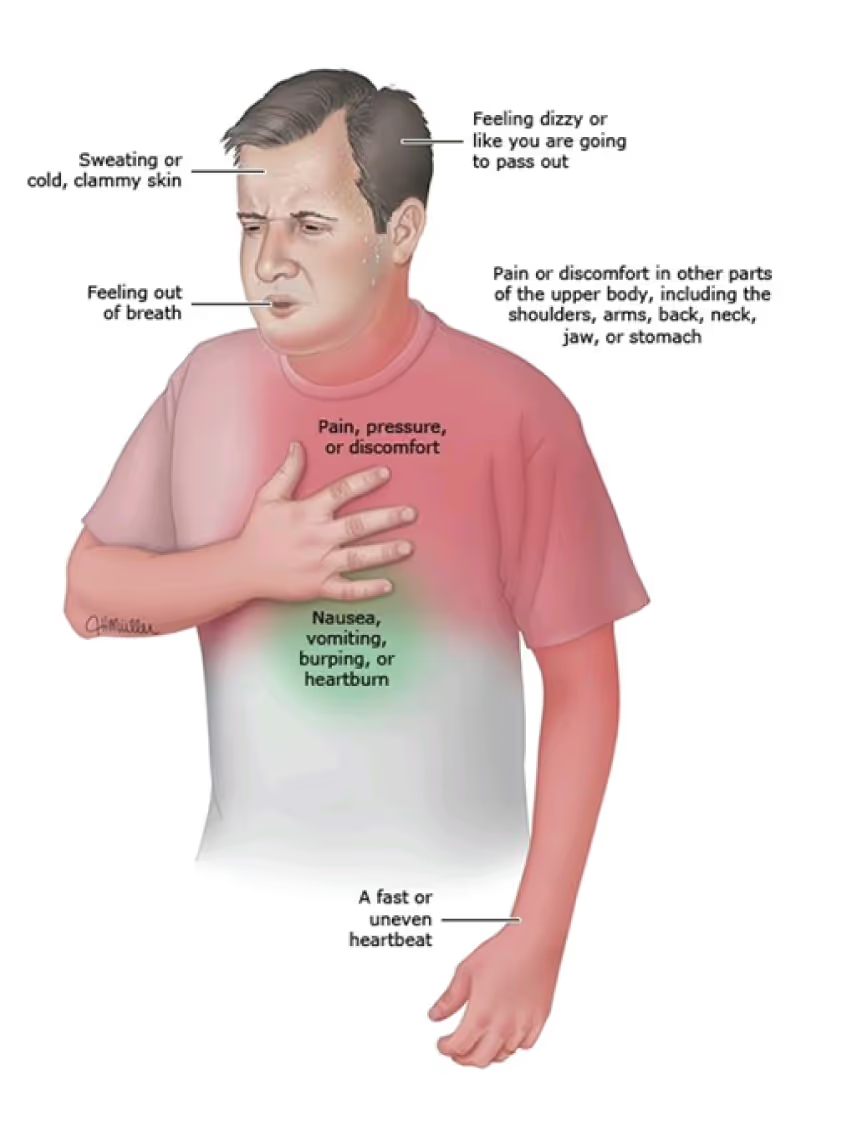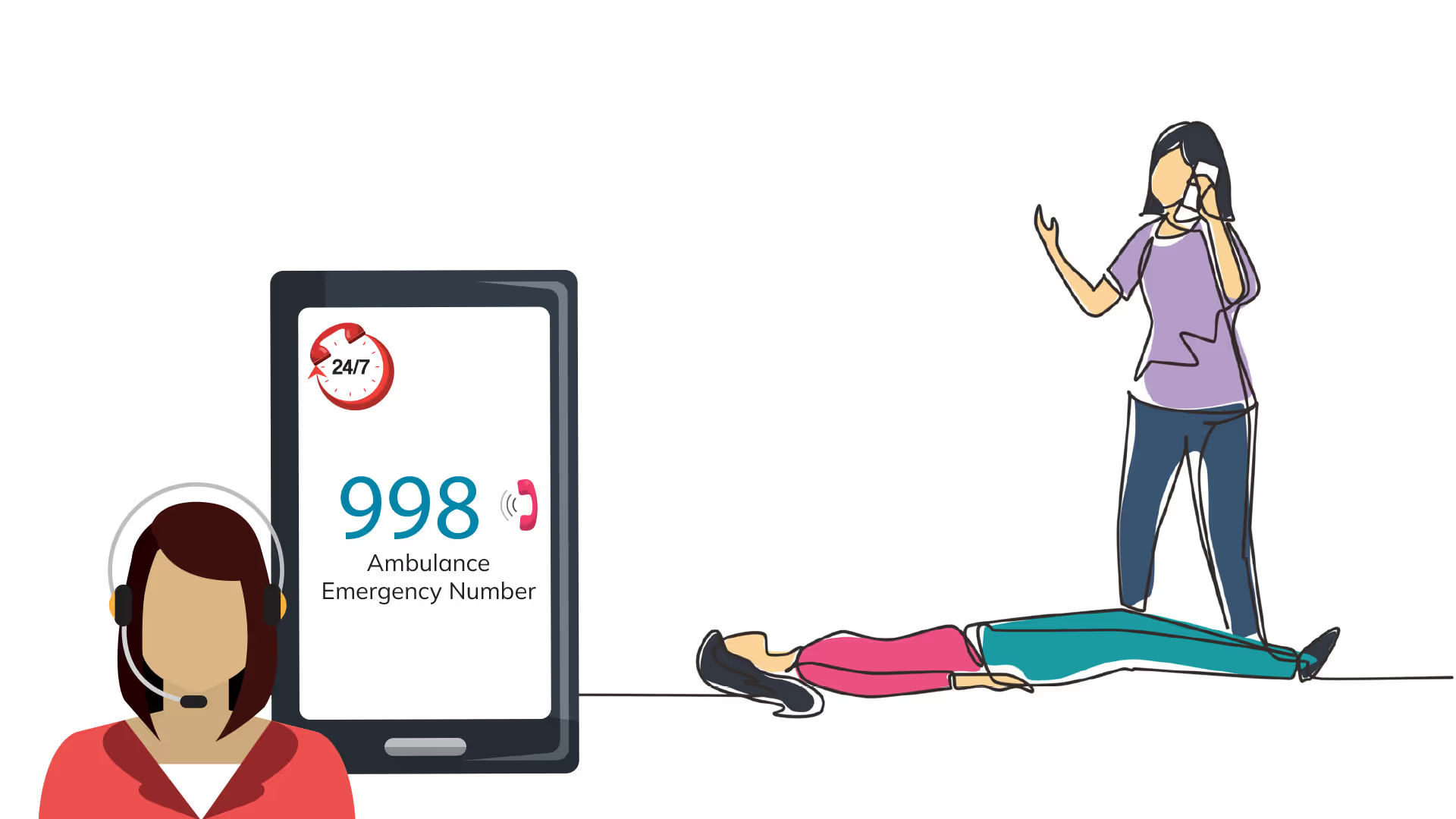
What is a Heart Attack? Symptoms, Causes, and Treatment
A heart attack occurs when blood flow that brings oxygen-rich blood to the heart muscle is severely reduced or cut off. This is due to a buildup of fat, cholesterol and other substances (plaque) that narrows coronary arteries. This process is called atherosclerosis.
When plaque in a heart artery breaks open, a blood clot forms. The clot can block blood flow. When it completely stops blood flow to part of the heart muscle, that portion of muscle begins to die. Damage increases the longer an artery stays blocked. Once some of the heart muscle dies, permanent heart damage results.
The amount of damage to the heart muscle depends on the size of the area supplied by the blocked artery and the time between injury and treatment. The blocked artery should be opened as soon as possible to reduce heart damage.
Understanding what a heart attack is and recognizing the symptoms can help save lives. This article will provide an in-depth look at heart attacks, including causes, symptoms, treatment options, and preventive measures.
Coronary heart disease, which includes heart attack, is the No. 1 cause of death worldwide. But many of those deaths can be prevented.
Minutes matter. It’s important to learn the warning signs of a heart attack so you can act fast to save a life maybe your own.
Some heart attacks are sudden and intense but may start slowly, with mild pain or discomfort.
Many people experience early warning signs of a heart attack, which can develop gradually. Recognizing the Early Signs of a Heart Attack can provide an opportunity to seek medical help before severe damage occurs. Some of the common early warning signs include:
Heart attack symptoms can differ between individuals, but the most common signs include:
It is important to note that women may experience less typical symptoms, such as shortness of breath, fatigue, nausea, or back pain, which makes it essential to be vigilant and seek immediate medical attention if there are any concerning signs.

Even if you’re not sure it’s a heart attack, immediately call the ambulance on 998. Ambulance paramedics can begin treatment when they arrive up to an hour sooner than if someone gets to the hospital by car. People with chest pain who arrive at the hospital by ambulance also usually receive faster treatment.

Before there’s an emergency, find out which hospitals in your area have 24-hour emergency cardiac care. Also, keep a list of emergency phone numbers in your mobile phone and at home. Take these steps now.
Many people having a heart attack wait more than three hours before seeking help. Some people feel it would be embarrassing to have a “false alarm.” Others are so afraid of having a heart attack that they tell themselves they aren’t having one, or it is stomach gas or acidity. These feelings are easy to understand, but they’re also very dangerous. If you or someone close to you shows signs of a heart attack, call 998 and get help right away!
Even if you have heart disease, you can do a lot to improve your heart health. Work with your health care team to reduce your risk. Some steps you can take include:
Fakeeh University Hospital (FUH) offers state-of-the-art care for heart attack patients in Dubai, providing 24/7 emergency services, advanced cardiac diagnostics, and personalized treatment plans. Our expert cardiologists and experienced medical staff are committed to providing the highest level of care.
This comprehensive guide aims to provide valuable information about heart attacks, their symptoms, causes, and preventive measures. Remember, knowledge is power, and recognizing the signs of a heart attack could save a life. If you or someone you know is at risk, take proactive steps to maintain a healthy heart and seek medical advice when needed.